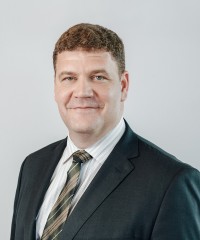
Asia-Pacific Institute in Educational Fundraising
Further enhance your learning as well as cognitive understanding through role-playing in creative scenarios! Whether your task is to increase gifts to the annual fund or to search for those elusive major gift donors, you will walk away from this institute with usable techniques that will return your investment in the programme many times over.
Testimonials
Starting an Advancement programme from scratch at the International School of Beijing compelled me to seek out advice and training from the very best people in the field. APIEF was recommended to me by a former colleague. I was deeply impressed by the passion and expertise of the team, how generous they were with their time and the amount I learned. I couldn’t have imagined it would have been as good as it was. In fact, another of my team members is participating in 2019. She’s in for a treat!
It was my first year working at the University of Sydney, my first role in Advancement and my first job after university. I was young and curious; APIEF gave me a lot to think about, a sense of confidence and a network of like-minded peers. This, and the support of a great boss and mentors, helped me move into exciting and rewarding roles in Advancement Services, Alumni Relations and Development. I was encouraged to take on new roles because I understood the fundamentals, much of which I learned through CASE.
Programme Structure
APIEF provides experienced advancement professionals with refreshing ideas and strategies to invigorate your team and further advance your institution's strategic goals. For those newer to the profession, the institute offers you with a solid foundation in fundraising through a compact and enriching residential programme.
Programme
Meet the Chair

Jon Paparsenos
Jon Paparsenos is the Vice President Philanthropy and CEO UNSW Foundation appointed in 2016. He brings to the role more than 14 years' experience in the planning and execution of fundraising campaigns. Prior to joining UNSW, he served in the position of executive director of development, academic divisions and regions for the California Institute of Technology and with Marquette University in Wisconsin and Community Counselling Co., LLC in New York.
Register now to secure your spot!
Regular rates (from 1 August 2019)
Member: AUD 3,550 / SGD 3,410 / USD 2,500
Non-member: AUD 3,850 / SGD 3,700 / USD 2,715
What’s included?
- Three nights of accommodation at the Institute venue or alternative offsite accommodation (Check in 23 Sep, Check out 26 Sep).
Please be informed that the accommodation at the institute venue has been fully booked. An alternative offsite accommodation (Novotel Geelong - around 20mins drive away) will be arranged for late registrants and transport to/from Novotel Geelong to Waurn Ponds Estate at specific timings will be arranged. If you would like to proceed with registration, please email Ms May Ng at mng@case.org. - Institute materials and meals as indicated in the schedule.
Optional Transport:
CASE will arrange a coach to pick-up/drop off delegates from/to the following location:
- One-Way Transport from Southern Cross Coach Terminal to Waurn Ponds Estate, 23 Sep, 9 a.m. - AUD 40 / SGD 40 / USD 30
- One-Way Transport from Waurn Ponds Estate to Southern Cross Coach Terminal, followed by Melbourne Tullamarine Airport, 26 Sep, 2:55 p.m. - AUD 40 / SGD 40 / USD 30
- Two-Way Transport - AUD 80 / SGD 80 / USD 60
Note:
For Thursday (26 Sep)'s transport - There will be 2 drop off points. Delegates who are heading to the Southern Cross Coach Terminal will be dropped off first, followed by those who are heading to the Melbourne Tullamarine Airport.
Depending on traffic, It will take approximately 1hr-1hr30mins to travel to Southern Cross Coach Terminal, thereafter another 30mins-45mins to travel to the Melbourne Tullamarine Airport.
2:55 p.m.: Depart Waurn Ponds Estate
4:25 p.m.: Arrive Southern Cross Coach Terminal
5:10 p.m.: Arrive Melbourne Tullamarine Airport
Contact Information
For more information, please contact:
Ms May Ng
Advancement Programmes Manager
+65 6813 2521
mng@case.org